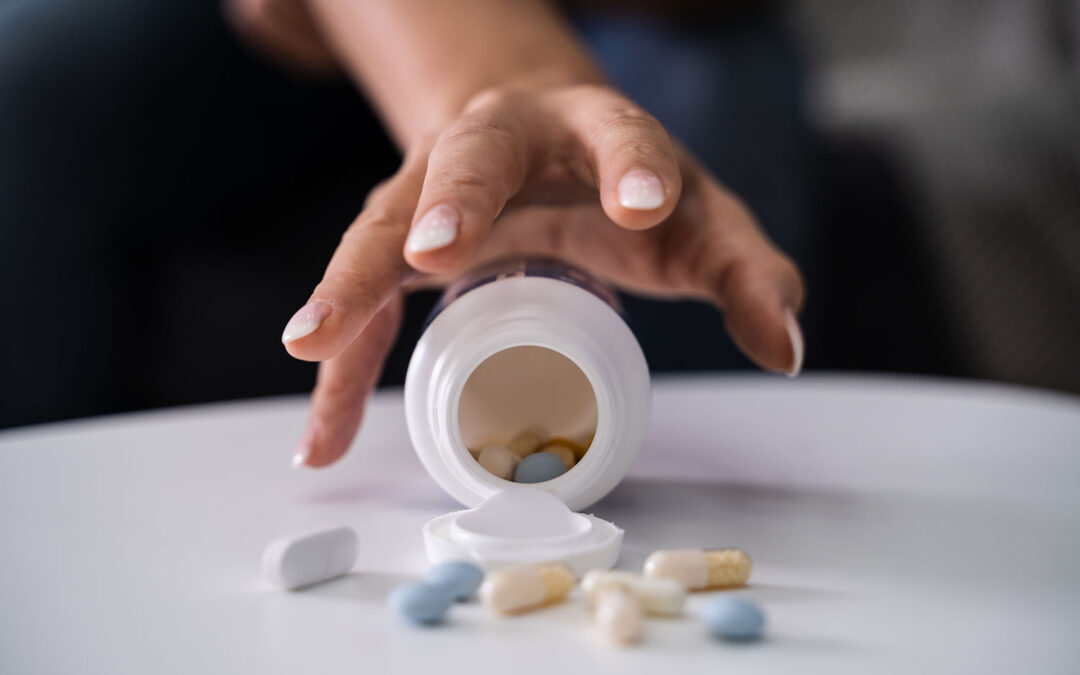According to data compiled by the U.S. Department of Health and Human Services, there were just over 10 million individuals (aged 12 and over) who misused opioid medication in 2019. Misuse of opioid medication is not only dangerous, it can also be deadly. This month, our Bedford pain and wellness team (in collaboration with our Benbrook location) is sharing a few opioid safety tips to help prevent these dangerous side effects. Read on to learn how to help yourself or your loved ones.
Dangers of Opioid Medications
Although opioid medications can be effective at relieving pain, they can also be incredibly dangerous. They have names such as hydrocodone, oxycodone, tramadol and fentanyl. Opioids are medications which are made from a synthetic ingredient that mimics the therapeutic benefits of opium poppy plants. This is the same plant which is used to create the illegal drug heroin.
Typically, these medications are only prescribed for post-surgical pain or more intense chronic pain. Unfortunately, there are several dangers associated with their use, including the following:
- Addiction
- Respiratory depression (slowed breathing)
- Physical dependence
- Severe withdrawals
- Death
All these dangers considered, it’s critical that patients do all they can to protect themselves. Next we will talk about a few practical ways to do this.
Educate Yourself
If you are here reading this blog, you are already participating in the recommended safety tips for opioid use. You are educating yourself on the dangers of opioids. Our Bedford doctors accepting new patients (located also in Benbrook TX) applaud you for taking this first step.
Be sure to find reputable sources, for information as you research the benefits and dangers of taking opioid medications. Speak with a trusted member of your care team. Look carefully online for evidence-based research. Watch and read testimonials of those who experienced the dangers of opioid medication firsthand. Learn the signs of addiction and, if you suspect that you or a loved one is struggling, don’t wait to get help.
Practice Safe Storage Recommendations
Opioid medications are not just dangerous for the patient, they also pose a significant threat to those who live with the patient. This is especially true if there are young children in the home and medications are not properly stored. All medications need to be kept in a locked medication cabinet in a location away from guests’ and children’s access.
Additional safe storage recommendations also include:
- Keep opioids in a current, labeled container when traveling
- Always store opioid medication in the container they were received in from the pharmacy; this will help ensure the patient always has access to the proper dosage information to prevent accidental overdose
- Follow safe disposal procedures such as local drug take-back events or pharmacy recommendations
Keep Your Care Team in the Loop
Finally, we strongly encourage you to identify a trusted member of your care team to keep informed throughout the entire duration of your use of opioid medication. Sometimes this will be the specialist who prescribed the medication. Other times, it may be a caregiver, counselor or therapist.
The key is to choose a professional who you feel comfortable with. It’s not easy to ask for help or admit you may be struggling. Give this person permission to ask you about your medication use and give yourself permission to answer honestly.
Bedford Pain and Wellness
Pain is actually a wide spectrum of disorders including acute pain, chronic pain and cancer pain, and sometimes a combination of these. The physicians at CPI have special training in the evaluation, diagnosis, and treatment of all different types of pain. CPI offers a scope of services depending on your specific set of needs as a patient. Contact us today to help with medication management, chronic pain and more.

